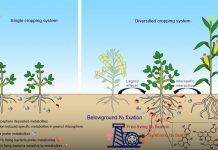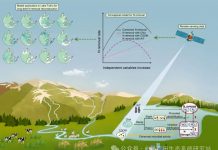Shuang Peng Yiming Wang Beibei Zhou Xiangui Lin. Long-term application of fresh and composted manure increase tetracycline resistance in the arable soil of eastern China. Science of The Total Environment Volumes 506–507 15 February 2015 Pages 279–286.
Abstract
The aim of this study was to compare the occurrence abundance and diversity of tetracycline resistance genes (tet) in agricultural soils after 6 years’ application of fresh or composted swine manure. Soil samples were collected from fresh or composted manure-treated farmland at three depths (0–5 cm 5–10 cm and 10–20 cm). Nine classes of tet genes [tetW tetB(P) tetO tetS tetC tetG tetZ tetL and tetX] were detected; tetG tetZ tetL and tetB(P) were predominant in the manure-treated soil. The abundances of tetB(P) tetW tetC and tetO were reduced while tetG and tetL were increased by fertilizing with composted versus fresh manure; thus the total abundance of tet genes was not significantly reduced by compost manuring. tetG was the most abundant gene in manure-treated soil; the predominant tetG genotypes shared high homology with pathogenic bacteria. The tetG isolates were more diverse in soils treated with fresh versus composted manure although the residual tet genes in composted manure remain a pollutant and produce a different influence on the tet gene resistome in field soil.







